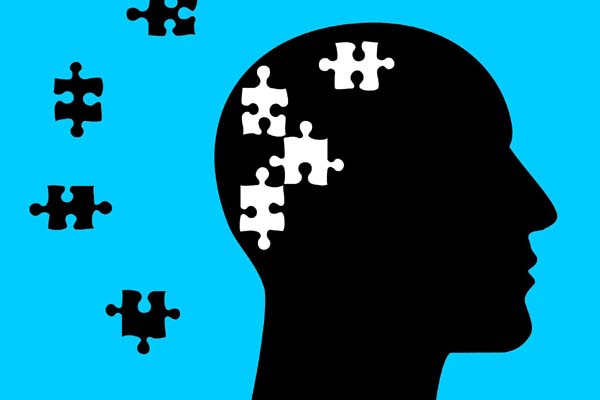
Alzheimer’s is a form of dementia that leads to memory, thinking, and behavioral problems. Its symptoms usually show up slowly and worsen with time, getting severe enough to hinder daily life.
Alzheimer’s is the most common type of dementia, generally refers to memory loss and deteriorates cognitive abilities. In dementia diagnosis, around 60 to 80 percent of cases are found to be Alzheimer’s disease. It mostly occurs in old age, but it is not a normal part of aging. The major risk factor is the increasing age, so when a person gets in his or her 60s, chances of developing Alzheimer’s elevate.
Problems with Eating and Drinking
Seniors with Alzheimer’s often experience difficulty with eating and drinking. Since eating a balanced, healthy diet is important in all stages of life, it can help them maintain mental and physical well-being. The food we eat has 75 percent effects on our bodies and other physical activities and therapies have 25 percent effects. Therefore, in case of Alzheimer’s, focusing on diet comes on top.
Medications side effects causing poor appetite, cognitive decline, sensory impairments, and physical disabilities can together cause a person with Alzheimer’s to have issues with eating properly.
Diet issues are quite common in people living with dementia, but every person’s challenges are unique and require different tactics to be managed. Due to this, caregivers should take into account the person’s beliefs, preferences, life history, and culture. For instance, their religious beliefs may prohibit eating certain foods like shellfish or pork or they may be affected by their surroundings.
It is important to tailor care situations to their individual preferences and requirements. As Alzheimer’s is chronic, the person is likely to need more assistance in the future to meet his or her needs.
Causes of Poor Appetite in Seniors with Alzheimer’s
There are a number of reasons people with Alzheimer’s lose interest in, or totally avoid, eating food.
1. Depression
Loss of appetite can manifest depression – a common condition among people with Alzheimer’s. They can benefit from medications, therapies, and other effective treatments available for reducing depression. If your loved one is being depressed, consult a general practitioner.
2. Communication
People with Alzheimer’s have problem conveying their message that they are hungry or they would like to eat their favorite dish. However, they may communicate through their behavior; they may refuse to have food or hold it in their mouth. Using prompts and pictures and letting them choose what they want to eat can be helpful.
3. Pain
People with Alzheimer’s may be in pain but won’t express it due to communication problems, making eating uncomfortable. They may have sore gums, denture problems, or painful teeth. Schedule regular mouth check and make sure your loved one has optimum oral hygiene to prevent such issues.
4. Fatigue
Fatigue can also lead seniors with Alzheimer’s to have a poor appetite. They may not eat or give up part way during the meal. It further leads to challenges with coordination and concentration. It is important to know when your loved one is tired. Offer enough support to help him or her feel relaxed and continue eating properly.
5. Medication
Medication or dosage changes can cause appetite changes. If you think this is the result of medication side effects or related factors, discuss this with your loved one’s doctor.
6. Physical Activity
If a person with Alzheimer’s is not active throughout the day, he or she may not feel hungry. Encourage your loved one to stay active and take part yourself in activities to keep him or her motivated, as this will help in boosting his or her well-being and appetite. On the other hand, if your loved one is hyperactive or restless, he or she may need extra calories and must eat more food to replace them.
7. Constipation
Constipation is a common problem that comes with dementia. It can cause a person feel nauseous or bloated, making him or her less likely to eat. Encourage activity and offer fiber-rich foods and plenty of fluids to prevent constipation. If it becomes a serious problem, consult a doctor.
Tips to Promote Appetite
The following tips are found to effective in encouraging appetite in seniors with Alzheimer’s.
1. Choose Bright Colored Plates
According to a research done by Boston University, patients eating from red plated ate 25 percent more food than those eating from white plates.
2. Eat Together and Make Eye Contact
Sit directly in front of your loved one and make eye contact. Keep eating to give your loved one a sign that it’s meal time. Your loved one may not know what is happening but he or she is likely to follow the lead you are giving indirectly.
3. Don’t Talk
Convincing a person with Alzheimer’s to eat can be counterproductive to your efforts. Keep the eye contact, smile, and continue eating. Wait until your loved one follow what you are doing. A smile can make an Alzheimer’s patient feel better, so he or she can be comfortable eating with you.
4. Praise the Food
While staying quite is key to keep an Alzheimer’s patient eating, praising food too. Don’t make long explanations; simply go with “Yum, this is tasty.” Positive reinforcement can help a lot. Make sure to praise your loved one when he or she has finished eating to show that you care.
Foods that Promote Brain Health
Since diet plays the major role in maintaining overall health, there are certain foods seniors with Alzheimer’s should consume regularly.
1. Leafy Green Vegetables
Spinach, kale, mustard greens, and collard are some leafy greens that are high in vitamin B9 and folate that can slow the progress of cognitive decline and lower depression.
2. Cruciferous Vegetables
Brussels sprouts, kale, cauliflower, broccoli, and bok choy contain high content of folate and carotenoids that are known to lower homocysteine – an amino acid related to cognitive decline.
3. Whole Grains
Quinoa, khorasan wheat or kamut, and gluten-free oats are found to be very healthy for people with dementia due to their high nutrient content.
4. Beans and Legumes
Bean and legumes are rich in iron, folate, potassium, and magnesium that aid in neuron firing and general body function. They also entail choline and vitamin B that are essential for boosting acetylcholine – a neurotransmitter vital for brain function.
5. Colorful Vegetables
Squash, asparagus, pumpkin, carrots, beets, and tomatoes contain folate, iron, and vitamin A that help with cognition. Make sure not to overcook them as it will reduce the nutrient content.
6. Cherries and Berries
These fruits contain high amounts of antioxidants that combat against free radicals from damaging the brain. They also have anti-inflammatory properties and are rich in vitamins C and E.
7. Nuts and Seeds
Nuts like almonds, walnuts, cashew, peanuts, pecans, and hazelnuts contain omega-3, omega-6, magnesium, vitamin B6, and folate that are vital for healthy brain functions as they can slow the onset of dementia and cognitive impairment.
Seeds including pumpkin and sunflower seeds are rich in choline, vitamin E, and zinc that are essential components for a healthy brain.
8. Spices
Sage, cinnamon, cumin, and turmeric can help breaking up plaques in the brain and reducing inflammation if the brain which can lead to memory loss. In addition to lowering the risk of dementia and Alzheimer’s, spices are also great in lowering the risk for heart disease, obesity, hypertension, and diabetes.
It is important to know that the foods you are serving your loved one with Alzheimer’s are organic and free of toxins. Also, limit the intake of caffeine, alcohol, and drugs in your loved one to avoid deteriorating the existing Alzheimer’s.
Caring for someone with Alzheimer’s requires lots of efforts and can be overwhelming at times because family caregivers don’t have enough knowledge in this regard. Constant care routine and not getting enough time to focus on yourself can lead you to burnout.
Therefore, it is essential to get help from a professional, knowledgeable at-home caregiver to take a break from your challenging routine, re-energize by leaving your loved one in good hands, and be ready again to give your best in providing care for your loved one.




